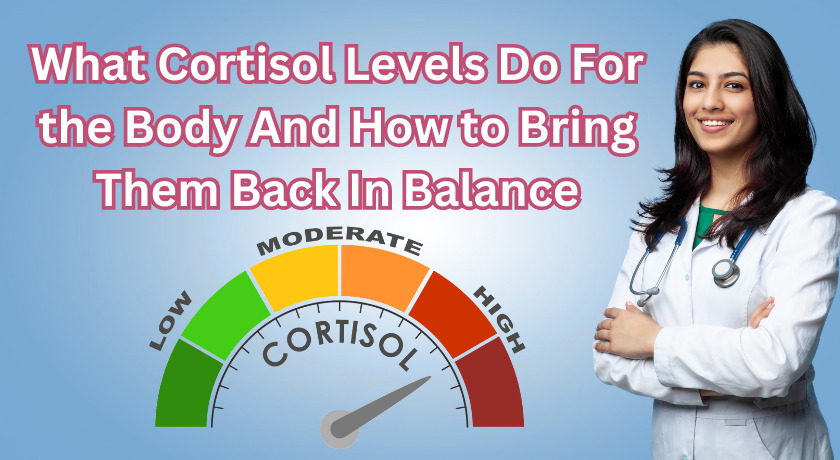Cortisol, the so-called “stress hormone”, has been widely discussed on social media as of late, but what is it and how does it affect the body? How does one know if their cortisol levels are imbalanced? What can people do to bring their cortisol back into check?
The Cleveland Clinic defines cortisol as “a glucocorticoid hormone that your adrenal glands produce and release.” They go onto define a glucocorticoid as “a type of steroid hormone. They suppress inflammation in all of your bodily tissues and control metabolism in your muscles, fat, liver and bones.”
“Cortisol supports overall health,” Dr. Lin, of the Cleveland Clinic, wrote. “It helps us wake up, gives us energy during the day and lowers at night to help us sleep and rest.”
But, the long term effects of elevated cortisol levels can become Cushing’s syndrome; while rare, Cushing’s comes with some concerning symptoms, including:
- Weight gain, especially in your face and abdomen.
- Fatty deposits between your shoulder blades.
- Wide, purple stretch marks on your abdomen (belly).
- Muscle weakness in your upper arms and thighs.
- High blood sugar, which often turns into Type 2 diabetes.
- High blood pressure (hypertension).
- Excessive hair growth (hirsutism) in people assigned female at birth.
- Weak bones (osteoporosis) and fractures.
While Dr. Lin and the Cleveland Clinic suggest that dietary changes can help your cortisol levels, but likely will not be able to rebalance them, alone. Along with proper nutrition, they suggest those looking to lower their cortisol exercise often, sleep regularly, and spend more time in nature.
Sources:
https://my.clevelandclinic.org/health/articles/22187-cortisol
health.clevelandclinic.org/how-to-reduce-cortisol-and-turn-down-the-dial-on-stress/



